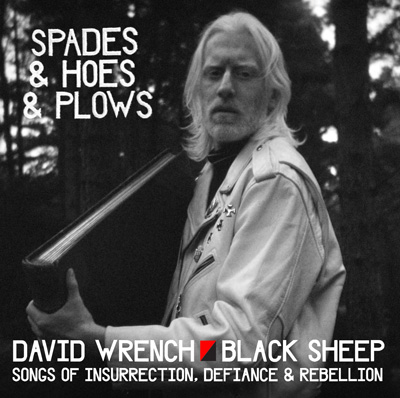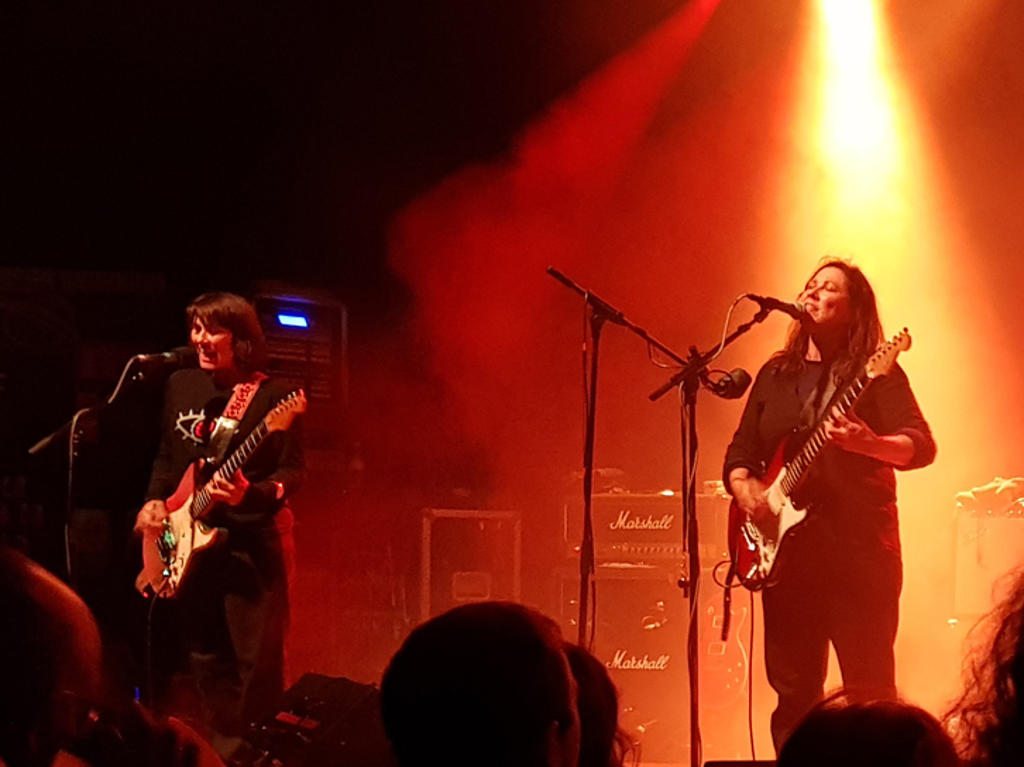 In the early 1980s, Ivo, founder of the 4AD record label (historic home of acts including The Cocteau Twins, The Birthday Party and Pixies, and current label behind Camera Obscura, Ariel Pink’s Haunted Graffiti, Tindersticks and Scott Walker), was given an audio cassette by razor-cheekboned Bauhaus frontman Pete Murphy. Although it was an umpteenth generation copy, and probably sounded like it had been recorded through an old woollen sock, the contents so entranced Ivo that he instantly resolved to license the recording and issue it on 4AD.
In the early 1980s, Ivo, founder of the 4AD record label (historic home of acts including The Cocteau Twins, The Birthday Party and Pixies, and current label behind Camera Obscura, Ariel Pink’s Haunted Graffiti, Tindersticks and Scott Walker), was given an audio cassette by razor-cheekboned Bauhaus frontman Pete Murphy. Although it was an umpteenth generation copy, and probably sounded like it had been recorded through an old woollen sock, the contents so entranced Ivo that he instantly resolved to license the recording and issue it on 4AD.
Although classical music had explored the musical styles of the Eastern Europe on a number of occasions – Bartok with his “Roumainian Folk Dance” or Brahms’ Hungarian Dances – popular music had stayed well and truly clear of the Balkans, with the exception of ur-fringe lunatics such as [post=”arthur-brown-strangelands” text=”Rustic Hinge“], whose mournful and beautiful “Macedonia” stood like a lonely signpost towards a music that few seemed eager to explore. So, it is no exaggeration to say that 4AD’s album represented the point at which the gene pool of alternative music widened, as Balkan musical DNA found its way into Western independent music. Though it would take over a decade for the musical genetic mutation to start properly evolving, eventually, from the mid-Noughties onwards, alternative music would begin to produce acts such as Zach Condon’s Beirut, whose sound is steeped in the tradition of Eastern European folk. Two sometime-members of Beirut, Jeremy Barnes and Heather Trost, are also the driving force behind the superb A Hawk and A Hacksaw, whose largely-instrumental music has its taproots embedded firmly in rich loam of Balkan, Turkish and Eastern European music.
A Hawk and a Hacksaw’s new album Cervantine comes after a period in which the band have spent considerable time living and working in Romania and Hungary, absorbing and exploring the region’s music in fanatical detail, and dovetailing it perfectly with the indigenous Mexican and North American forms of their native New Mexico. Commercial market segmentation in the music industry – selling you the shit that they want you to consume – relies so heavily on exploiting divisions between musical styles, or even creating them where none exist, that the territory that AHAAH so bravely and deftly strike out into reveals beautifully the artifice of this. Does that sound Balkan? Or Mexican? Or Arabic? The answer is, all three, for one of the unalloyed joys of music is its constant evolution and mutation, musical forms changing and hybridising as swiftly and constantly as any biological entity.The eight tracks that comprise Cervantine represent an artful fusion of traditional compositions, with original material written by Barnes, Trost and bouzouki player Chris Hladowski. From the rapturous opener, “No Rest For The Wicked,” whose whirling dervish sound transports instantly into a dusty street festival, to the elegant Greek-influenced staccato closer “The Loser (Xeftilis),” A Hawk and a Hacksaw whisk us away on a dizzying journey across rugged snow-capped mountains, through woodlands of oak, beech and spruce, down to the clear blue waters of Mediterranean coastlines.
The traditional “Mana Thelo Enan Andra” could sit side-by-side comfortably with the work of Rabih Abou-Khalil, showcasing perfectly the Arabic and Middle Eastern influence that entered Eastern Europe by osmosis across the gradient of the Ottoman Empire. The title track, written by Barnes’ own hand, propelled by the lovely flatulent tuba of Mark Weaver, weaves strands of mariachi and klezmer so adroitly that what could sound like a ghastly collision of ill-defined influences – or worse still, dilettante thievery of something misunderstood – instead becomes a dazzling kaleidoscope through which to see the (musical) world. “Cervantine” segues into another traditional, “Uskudar,” where vocalist Stephanie Hladowski, used sparingly but always to maximum effect, adds a layer of both sensuality and mystery. Frost’s sorrowful arrangement of “Lajtha Lassú” could be played back-to-back with the aforementioned “Macedonia,” showing that alternative music is finally mature enough to follow Drachen Theaker’s moss-encrusted signpost regardless of whether the A&R men understand it, or know how to make money from it. Fuck them, Barnes and Trost have found a different way, both to make music professionally, and to connect with audiences receptive to musical modes that aren’t manipulated and drip-fed by corporate moguls or their fashionista puppets.Cervantine is a masterful album, travelling musical terrain that few have either the nous, ability or desire to explore, and, like travel in the corporeal world, the longer one lingers there, the more will be revealed. Whether listened to as a stand-alone musical statement, or used as an entrée point into the incredible diverse styles of Eastern Europe (and wider), A Hawk and a Hacksaw have succeeded in making a travelogue through which you can roam the world without ever having to leave your room. Orbis non sufficit.
-David Solomons-


